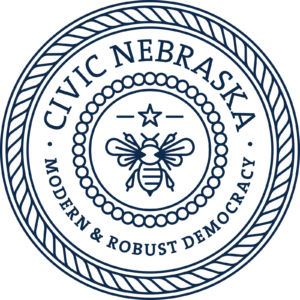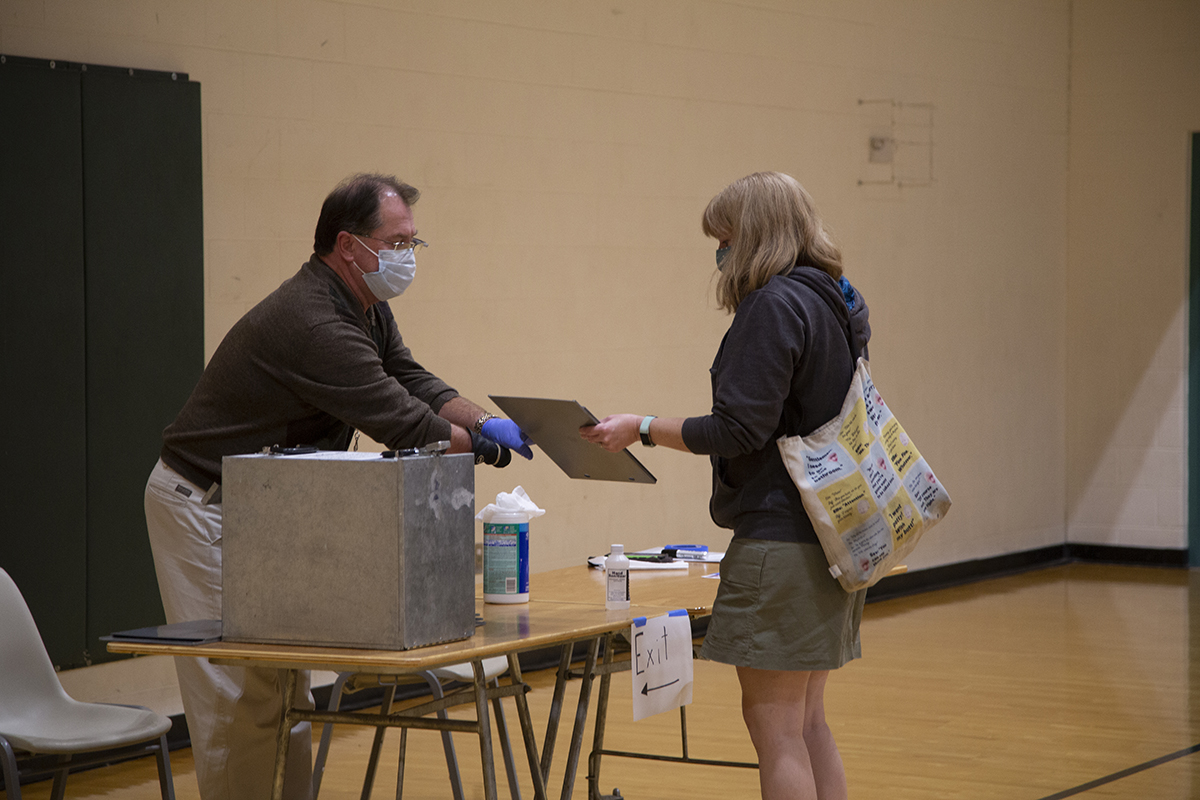Nebraska’s record-setting election in 2020 was largely issue-free, but the massive shift to absentee and early in-person voting uncovered areas of concern that lawmakers and administrators should address to ensure every eligible voter can freely cast a ballot in future elections, a new Civic Nebraska report says.
“Despite challenges brought by COVID-19 and a tense political environment, Nebraska’s general election proceeded remarkably well,” states the 2020 Civic Nebraska Election Protection Report. “New pro-voter legislation and administrative changes at the county and state levels will help future elections by accommodating even more voters and allowing for better administration in general.”

The Dec. 22 report detailed issues and successes with the state’s Nov. 3 general election. An all-time high of 966,920 Nebraskans cast ballots this fall; driven by continued coronavirus concerns, more voters cast early ballots in 2020 (539,330) than in person (427,590).
For lawmakers, the report suggests specific legislation that would:
> allow all Nebraska counties, regardless of size and beyond only those under 10,000 in population, to request conducting elections by an all-vote-by-mail standard;
> implement automatic voter registration through the Department of Motor Vehicles;
> establish day-of voter registration on Election Day to reduce the need for and administration of provisional ballots;
> improve absentee voting by allowing voters to request their ballots online; and
> include pre-paid postage on all early absentee ballot return envelopes.
Civic Nebraska trained and deployed nearly 200 election observers, who witnessed the election unfold at nearly 300 polling sites in nine counties around the state. Easily the most commonly observed issue was voters going to the wrong polling place, the report said. This problem was exacerbated at locations with multiple precincts in close proximity.
Also, Nebraskans utilized a large number of provisional ballots, indicating voter confusion on how to properly cast a regular ballot: For example, several voters who inquired about registering to vote or casting a provisional ballot after moving to Nebraska from another state, or to a different county within Nebraska. These voters were unable to utilize a provisional ballot, and there was no remedy so they could cast ballots, even though they were otherwise eligible voters.
This shows the clear need for reform, such as same-day voter registration, to accommodate Nebraskans who might fall outside the statutorily prescribed voter-registration deadlines, the report says.
Among its administrative recommendations, the report included improved ballot tracking of absentee ballots, as well as determining which precincts around the state need extra language assistance.
One main reason why the state’s election proceeded so smoothly, according to the report, was that there was not a single report of machine failure. This year, Nebraska replaced its aging election infrastructure with upgraded election machines; these were put in place for the first time during the May 15 state primaries. Also, the report notes, poll workers overwhelmingly performed professionally and took care so that voters were able to cast ballots that counted.
“This is a testament to local county election officials, who helped train and manage the 4,000 poll workers throughout the state,” the report says.
![]()


